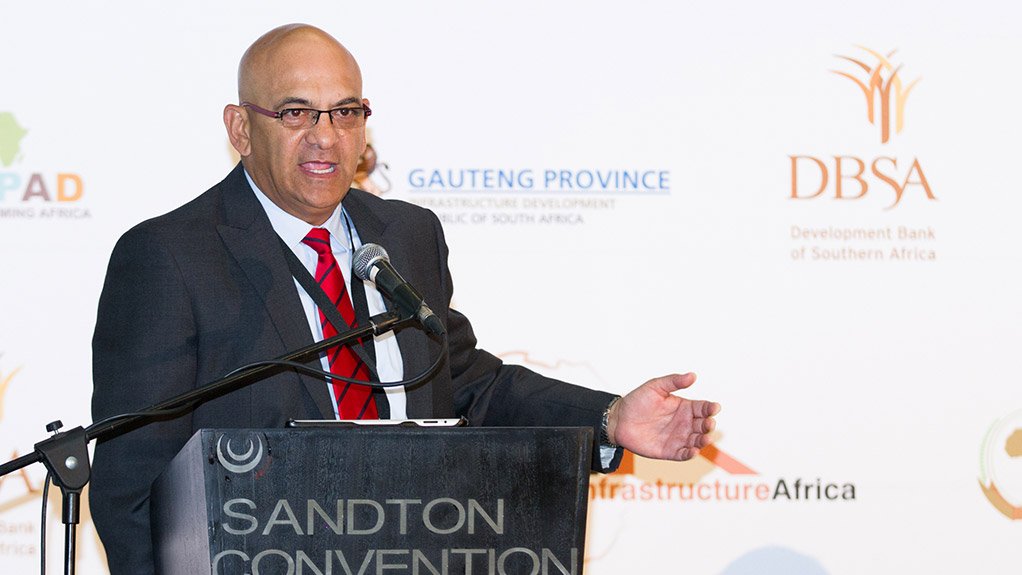Megaprojects are often over budget and delayed and project planning is a crucial element in ensuring the successful delivery of such projects.
Given the size of megaprojects, there were also significant capacity constraints in managing the project from planning to execution, Development Bank of Southern Africa international financing group executive manager Moe Shaik told delegates at the fourth yearly Infrastructure Africa Business Forum, in Johannesburg, on Tuesday.
He emphasised that proper planning was important and added that, “the science of infrastructure is helping develop tools and skills for planning”.
Meanwhile, he noted that governments did not conduct proper consultation with the users of infrastructure.
“I [believe] that e-tolling is right. The user-pays principle is correct. We must pay e-tolls to ensure that future generations will have the kind of network for them to be able to build new infrastructure,” said Shaik.
However, e-tolls had not undergone a proper consultation process and, as a result, an opposition movement developed that rejected the system.
All the work that had been done by the South African National Roads Agency to explain the benefits of e-tolls should have been done in the beginning. Users of the roads could have had a better understanding and better acceptance of the user-pays principle.
He added that infrastructure was becoming a class of assets that policy-makers were seeking to extract rent from.
“Unfortunately and invariably, it’s the user that pays. We need to move away from rent-seeking behaviour. It causes infrastructure to be unsustainable,” he said.
Investment and Challenges
Shaik noted that there was an increase in private participation in infrastructure investment in Africa between 1990 and 2013, especially from China.
He said private sector investment was increasing in areas such as information and communications technology and energy.
Meanwhile, some of the challenges facing Africa included a decline in commodity prices, including oil prices, over the past few months.
“Africa is far too dependent on commodity prices. This results in slower growth among main trading partners such as European countries and China. And the recovery taking place in the US and the possibility of rising interest rates results in slower growth,” Shaik stated.
The risks of this were the strengthening of the US dollar, which placed pressure on high levels of dollarised loan obligations; the possible build-up of government arrears; and the overexposure of African banks to oil-producing African countries.
The consequences of these were a decline in financing available to the continent, the steep rise of financing costs and lower growth and inflationary pressures.
“We need to pay more attention to beneficiation and move away from commodity dependency,” he suggested.
EMAIL THIS ARTICLE SAVE THIS ARTICLE
To subscribe email subscriptions@creamermedia.co.za or click here
To advertise email advertising@creamermedia.co.za or click here











